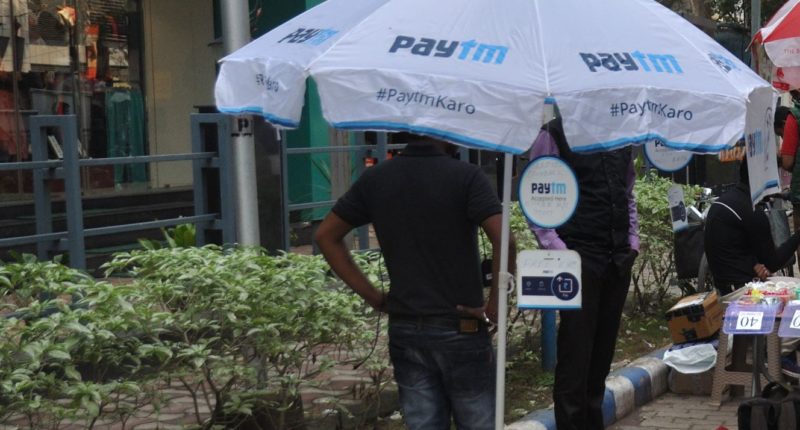Paytm, India’s leading digital payments platform, announced on Tuesday that it would be turning NFC-enabled Android smartphones into point-of-sale (POS) machines for merchant partners across the country. This comes after the digital payments leader had announced the launch of its ‘All-in-One’ Android POS device to help merchants accept payments through Paytm Wallet, all UPI-based apps, debit and credit cards, and most importantly – cash.
This update confirms that Paytm merchant partners would now be able to enable the card acceptance feature from their Paytm Business app. Once activated, they will be able to process a transaction by tapping a plastic card into their phone. Get ready for the transformation of an Android phone into a payments machine for vendors, merchants, home delivery services, and physical stores. This will work with all contactless credit and debit cards that run on the Mastercard, Visa, and RuPay platforms.
Vijay Sekhar Sharma, founder, and CEO of Paytm noted that existing payment devices have failed to reach small and medium-sized businesses in the country, most of which are offline. Paytm has made moves in that direction by launching QR codes that work across several payment networks. Additionally, it had launched jukeboxes and other gadgets to make it easier for merchants to accept payments digitally. Saying that most new Android smartphone models support the NFC (Near Field Communication) feature, he added that Tuesday’s move removed the obligation of buying a POS machine.
For it to work, merchants should download and activate the Paytm for Business app on their Android phones, which should support the NFC feature. In the app, there will be an Accept Card Payment option, which is set to allow merchants to verify their business details and pay a setup fee for the service to get activated. Enabling contactless payment receiving via cards on the Android phone negates the need to have a separate payment machine or terminal available at that time.
Earlier, the company had revealed its goal to add close to 10 million merchants to its platform over the next 12-18 months as it brings new features to its payments platform. “Over the past 18 months, we have invested much time in understanding the needs of small businesses around digital payments. We will continue to bring in features and solutions to address their challenges,” Sharma had said. The Android-based POS machine would be “about 20-30 percent cheaper and more comprehensive than the competition.”
Paytm, with 300 million wallets, 100 million Unified Payments Interface (UPI), and 55 million bank accounts, processed more than 1.2 billion transactions in February and is “the most comprehensive payment app and that it is bigger than all others combined in merchant mobile payments,” according to Sharma. While Paytm has recorded the highest merchant signups in Karnataka, Maharashtra, and Delhi, the states of West Bengal, Assam, and Bihar registered the fastest growth in merchant transactions.
Unsurprisingly, this move by Paytm has pitted it even harder against POS market leader Pine Labs. What will result from the competition, that remains to be seen.
Paytm envisions a scenario where the importance of digital payments would increase and integrate into mainstream society to become indispensable, where this Android-enabled contactless payments system would see use physical retail stores, restaurants, and even for delivery and logistics.
Analysts at the Bank of America wrote regarding POS, “Just the way, mobile phones saw an evolution from feature phone to smartphone, we believe the merchant PoS market in India is at an inflexion point to evolve from the traditional (aka dumb-PoS) to Smart-PoS. Unlike traditional PoS, which only allows transactions from debit/credit card, some of the features of a Smart-PoS are: GST compliant bill, scanner/printer, takes all payments including UPI, is Bluetooth enabled, and could be customized for different merchants as per their needs. While currently, the Fintech companies are offering these devices, we expect banks to catch-up eventually.”
The Tech Portal is published by Blue Box Media Private Limited. Our investors have no influence over our reporting. Read our full Ownership and Funding Disclosure →






